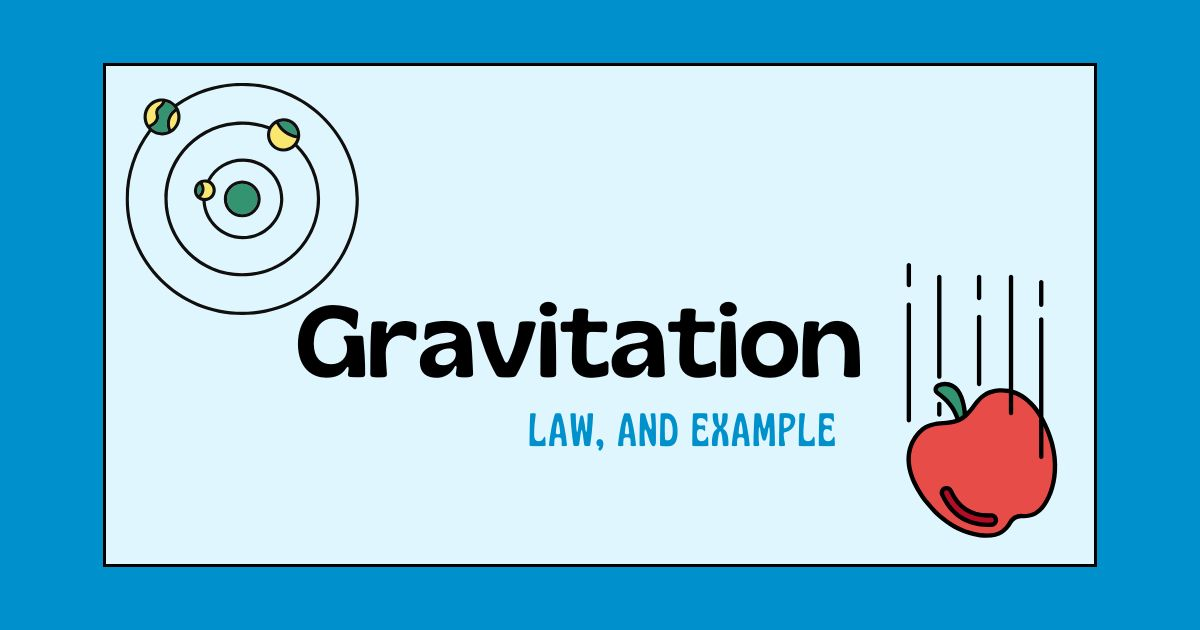Gravitation
gravity
universal law of gravitation
gravitational force
Newton’s gravitation
class 11 physics
examples of gravitation
gravitational constant
Gravitation – Meaning, Law, and Examples
Ode2Code
August 10, 2025
• 1 min read
What is Gravitation?
Gravitation is the force of attraction between any two objects in the universe .
In simple words – Everything pulls everything else towards itself .
The Earth’s gravitation is called gravity , and it pulls everything towards the ground.
Newton’s Universal Law of Gravitation
Statement:
Every object in the universe attracts every other object with a force that:
- Is directly proportional to the product of their masses.
- Is inversely proportional to the square of the distance between them.
Formula:

Where:
- F = Gravitational force
- G = Gravitational constant (6.67 × 10⁻¹¹ Nm²/kg²)
- m₁ and m₂ = masses of the objects
- r = distance between the objects’ centers
Examples of Gravitation in Daily Life:
- An apple falling from a tree.
- The Moon revolving around the Earth.
- Planets orbiting the Sun.
Difference Between Gravitation and Gravity:
- Gravitation: Force between any two objects in the universe.
- Gravity: Force between the Earth and an object near it.
Importance of Gravitation:
- Keeps planets in their orbits.
- Holds the atmosphere around the Earth.
- Causes tides in seas and oceans.
Summary:
Gravitation is a natural force that attracts objects towards each other.
Newton’s law helps calculate this force between any two objects.